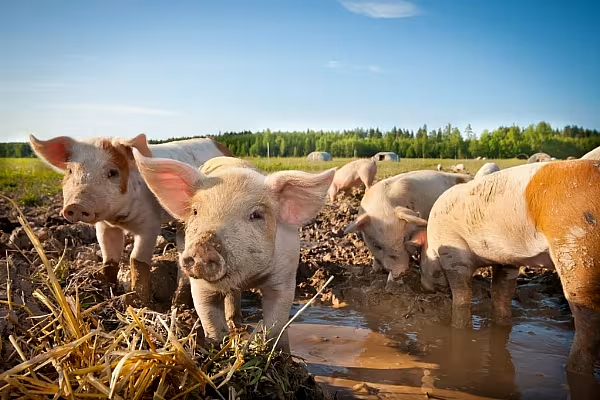Part of a huge German abattoir and meatpacking complex at the centre of a coronavirus outbreak can reopen, German authorities said on Wednesday.
The Tönnies slaughterhouse and meat packing complex in Rheda-Wiedenbrueck in western Germany has been closed since mid-June after some 1,500 workers tested positive for COVID-19.
This caused a lockdown for 600,000 people in the surrounding Guetersloh region that was lifted on 6 July.
Reopening
Part of the complex was allowed to reopen on Wednesday (15 June) after new health, safety and hygiene concepts were agreed, the Rheda-Wiedenbrueck local government authority said.
The reopened plants have 597 employees involved in slaughtering and seven in meat processing and work can start immediately, the authority said.
Toennies has also applied for the reopening of the rest of its meatpacking plant, the authority said. Health and safety experts will visit the plant on Thursday (today) to examine the company’s hygiene concept and a test reopening is possible on 17 July, it said.
Migrant Labour
German slaughterhouses have faced criticism for extensive use of migrant labour from east Europe under sub-contracts with cramped accommodation suspected of helping outbreaks of coronavirus in abattoirs.
Under a new concept, apartments where the workers at the reopened slaughterhouse live will be inspected and personnel will only drive two people at a time in automobiles, the authority said.
The Toennies plant in Rheda-Wiedenbrueck normally slaughters and processes about 14% of Germany’s pigs and is one of 19 meatpacking plants in Germany Toennies owns.
The closure has caused a sharp fall in German pig meat prices for farmers.











